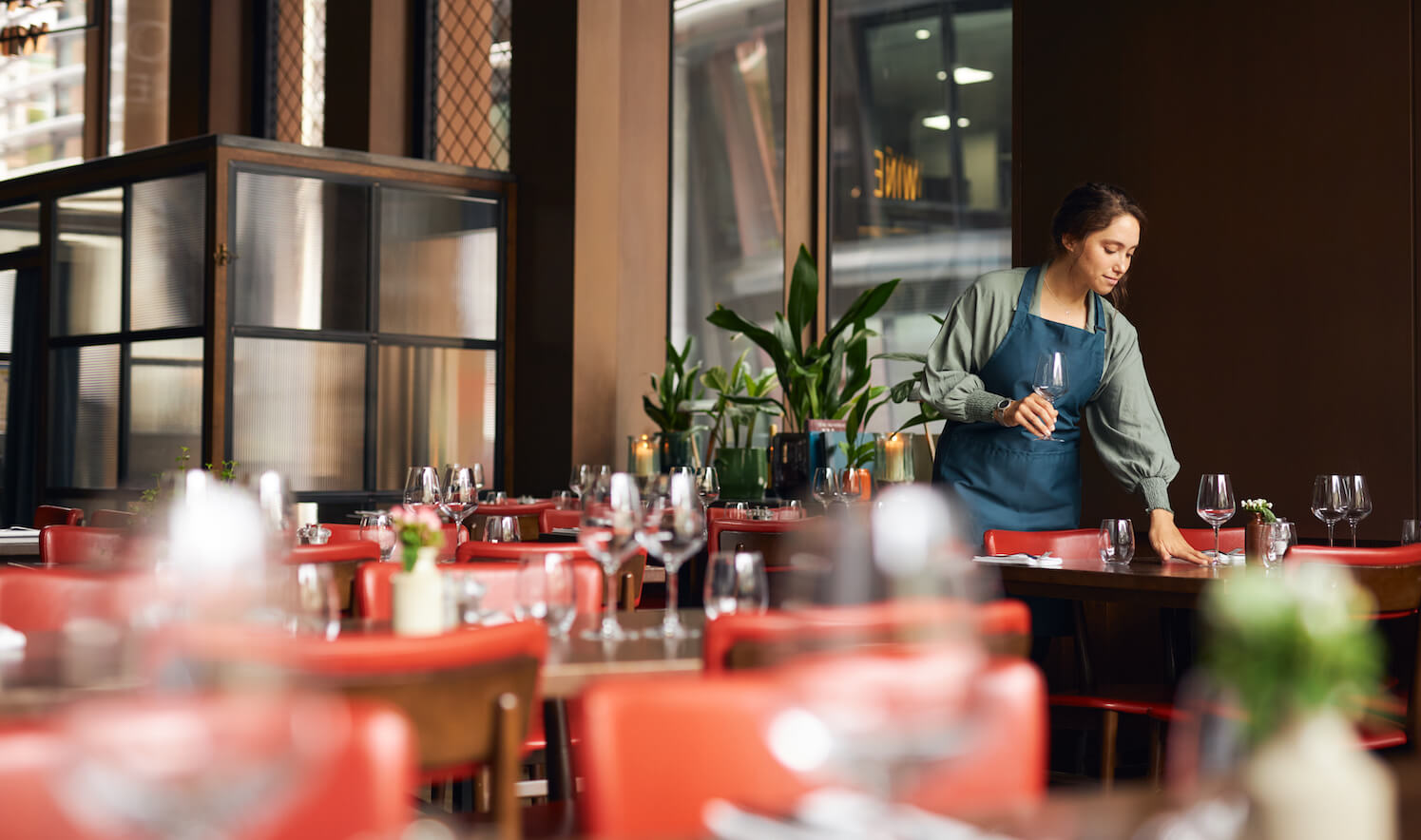
March 11th, 2024
Restaurant insurance can help restaurants owners protect from a variety of potential risks associated with day to day operations. While these risks can range from general liability incidents such as on premise accidents to cyber attacks, having insurance coverage is vital for any restaurant.
In this article, we will look at the types of restaurant insurance you might need, the variables which determine monthly premiums and how much you will pay in Canada.
Although restaurants thrive on social activity and great hospitality, they are fraught with hazards that could cause injury and later lead to costly lawsuits if not insured-so, what insurance do restaurants need? Below you will find a list of common restaurant insurance types.
Arguably the most important coverage for any business, CGL covers restaurants against claims made following on-site accidents that lead to injury or property damage. This type of insurance is a must-have for restaurants as it includes multiple types of insurance in one package.
Any restaurant that serves alcohol requires this coverage to prevent liability for legal and medical claims if a patron is injured while intoxicated. It protects employees responsible for serving the alcohol and other guests whom intoxicated individuals may physically impact.
Workers’ compensation protects and covers the cost of medical bills or benefits should an employee receive a long or short-term injury at work. Employee insurance protects restaurants against claims of underpaying or over scheduling.
It’s inevitable for customers to fall sick or react badly to food served at a restaurant, even when they’ve taken proper food safety measures. This insurance protects restaurants against defamation and legal claims.
Restaurants using cars, vans, motorcycles, or any other vehicle to sell and deliver food need vehicle insurance. This protects the car from costs involved with accidents, collisions, and theft.
Equipment breakdown cover helps business owners cover the cost of expensive repairs or replacement of vital restaurant equipment like commercial ovens and refrigerators.
Property insurance covers the costs of repairs and damages caused by fire, smoke, natural disaster, weather, or breakage. These premises reimburse business owners for the value of lost stock, damaged equipment, or items accounted for in the agreement.
POS and online booking systems are vital to smooth food service operations. Restaurants can reinforce digital resources with cyber liability insurance, saving them from attacks, data loss, and failure.
Restaurant insurance premiums can range greatly depending on several variables. These variables differ between restaurants and can result in premiums below and above average premium ranges.
External factors like crime rates or the likelihood of wildfires can affect costs. Some insurance companies are reluctant to accept the increasing risks of natural disasters and may charge more for coverage. Similarly, city center restaurants might have higher premiums than venues nestled in quieter, more residential places, as footfall may be higher, therefore increasing the risk of accidents.
Larger restaurants will need more coverage as there’s greater square footage to account for. Smaller venues typically have fewer assets, stock, and entrances that pose burglary risks. Bigger spaces typically have greater value, so repairs and rebuilds would cost more.
How much liability coverage you get will also determine the premium due. Having $1 million worth of coverage versus $5 million can increase your premium by a significant amount.
Modern fire safety installations, such as automatic sprinklers connected to reliable water supplies, fire alarms, emergency lighting, wireless smoke detectors, and emergency exits, could all reduce your insurance costs as you’ve actively tried to minimize risk.
Higher value assets like vehicles and cooking supplies will drive the price, as there’s a higher reimbursement rate.
Several years in the business without a claim often lowers coverage costs. Providers see these parties as less risky, potentially applying no-claims discounts.
Restaurants that serve alcohol are more likely to pay an extra 5–10% more than those that don’t, especially if venues turn into bars after hours.
Having general liability insurance should be a starting point for any restaurant. This type of insurance will cost you $120 or more pert month depending on the variables outlined above and provide the basic coverage every restaurant should have. Restaurant owners should try to get as many types of insurance bundled within their general coverage as possible.
The second type of restaurant insurance that restaurant owners should consider getting is workers’ compensation insurance. Employee related litigation is an ongoing risk facing hospitality business as wage and workplace incident claims continue to rise. Restaurants should expect to pay $140 or more per month for workers’ compensation insurance.
If your restaurant serves alcohol, consider getting liquor liability insurance. This type of insurance ensures that your restaurant venue is protected in case of patron incidents due to intoxication and will cost $50 or more per month.
The other types of insurance are more optional depending on your needs but all restaurants should have these three types of insurance which will cost $300 or more per month. It is highly recommended to shop around when choosing an insurance provider and should be the starting point for all restaurants seeking insurance.
Insurance packages that cover general liability, equipment breakdown, and employee compensation enable restaurants to operate efficiently and minimize downtime. While every restaurant’s needs may vary, getting the right insurance at the right price should be a priority for all restaurant owners.
General liability insurance offers broad coverage that all restaurants should consider. It’s also recommended to get workers’ compensation insurance and liquor liability insurance if it’s not included in the general liability package.
General liability insurance will cost Canadian restaurants $140 or more per month but for a more inclusive restaurant insurance package, Canadian restaurant should expect to pay $300 or more per month.
Commercial general liability, liquor liability, workers’ compensation, food and product liability, equipment, property and cyber liability.